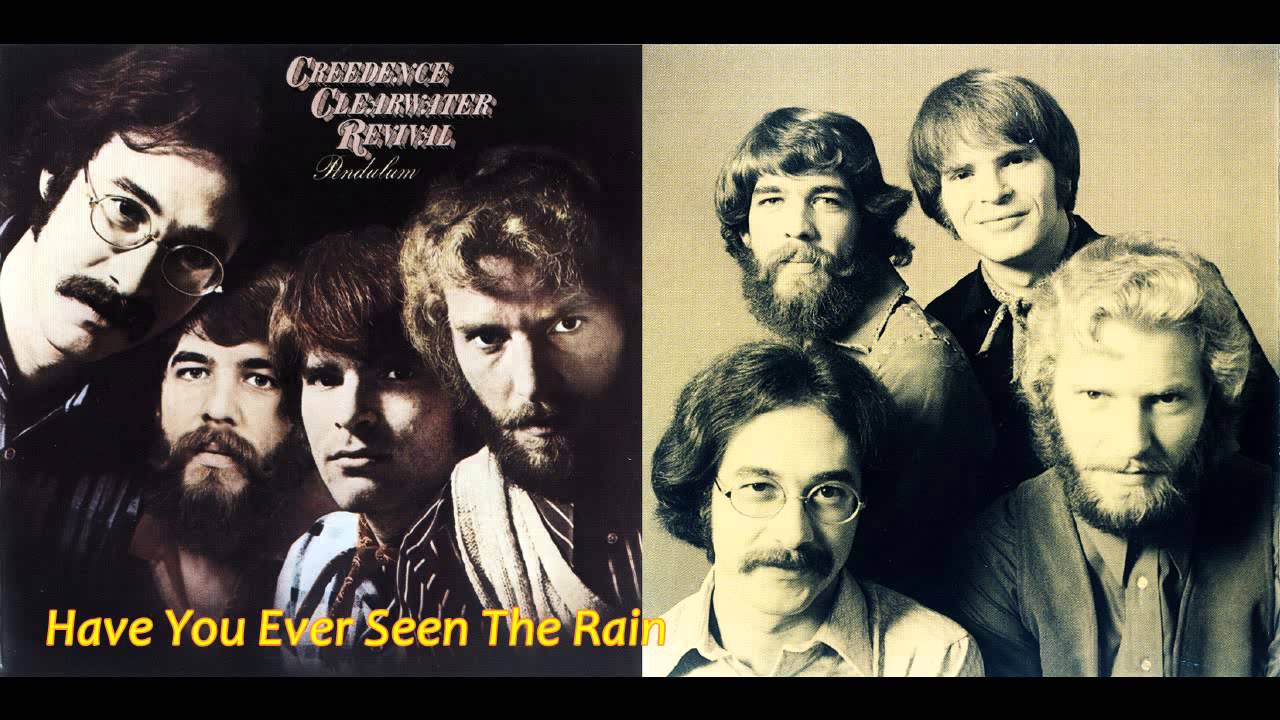
“It Came Out of the Sky” turns a UFO tall tale into a sly American fable—where the “miracle” matters less than the circus of people rushing in to profit, preach, or politicize it.
There’s a special kind of mischief in Creedence Clearwater Revival when they’re smiling through their teeth. You can hear it the moment “It Came Out of the Sky” kicks in—rock ’n’ roll built like a newspaper cartoon: quick strokes, sharp outlines, and one wicked little punchline after another. On the surface, it’s a rural sci-fi yarn: something falls out of the heavens and lands “just a little south of Moline,” on a farmer’s land. Underneath, it’s John Fogerty doing what he did better than almost anyone in 1969—taking the noise of the age and turning it into a song you can tap your foot to while you quietly realize you’ve been warned.
The facts anchor it in one of CCR’s most mythic creative bursts. “It Came Out of the Sky” was written by John Fogerty and recorded in 1969 for the band’s fourth studio album, Willy and the Poor Boys, released on October 29, 1969 by Fantasy Records. The album—famous for its street-corner cover photo and its no-nonsense, workingman swagger—peaked at No. 3 on the Billboard 200 (with Billboard’s chart archive reflecting that peak). That context matters, because this song isn’t an outtake curiosity. It’s part of a record that was already sitting near the top of the American conversation.
And what a conversation it is. The “object” in the song—meteorite, saucer, whatever you want it to be—becomes a mirror held up to the country. In Fogerty’s lyric, everybody shows up: politicians, preachers, TV men, movie men, all eager to claim the meaning of the event before the dust even settles. The song name-checks the era’s establishment figures, including then–Vice President Spiro Agnew, California Governor Ronald Reagan (tagged with a biting nickname), and the voices of broadcast authority—Walter Cronkite and Eric Sevareid—as if the whole nation has squeezed itself into one chaotic little field in Illinois.
That’s the brilliance: the UFO is almost beside the point. The real landing is the stampede of interpretation. One group wants to tax it. Another wants to weaponize it. Another wants to sanctify it. Hollywood wants to film it. And in the middle of that noise stands Jody, the farmer—practical, unromantic, unimpressed—who ultimately treats the whole “wonder” like property and talks price. Fogerty’s joke is not cruel; it’s clarifying. The song suggests that America can turn anything—even the unknown—into a commodity, a headline, a sermon, a campaign.
Musically, “It Came Out of the Sky” wears its satire lightly. It’s built on a brisk, Chuck Berry–leaning rock ’n’ roll snap—tight rhythm, clean forward motion, a band that sounds like it can outrun the very panic it’s describing. Critics and biographers have often noted that Berry-like rhythm-and-storytelling streak in the track. CCR doesn’t drown the message in drama; they let the groove carry it, because humor lands harder when it’s delivered with a grin and a backbeat.
As for “chart position at launch,” this is where honesty matters: “It Came Out of the Sky” was primarily an album track, not a major U.S. A-side hit. It was released as a single in some countries after the album era (with different B-sides depending on territory), including a UK single paired with “Side O’ the Road.” But its true legacy isn’t in a peak number—it’s in how it endures as one of CCR’s sharpest “deep cuts,” a song fans return to when they want Fogerty’s humor and bite in the same mouthful.
What does it mean, all these years later? It means the world still behaves like the song. Something falls out of the sky—some shock, some novelty, some crisis—and instantly the shouting begins: who gets to narrate it, who gets to monetize it, who gets to claim it as proof. “It Came Out of the Sky” is funny, yes—but it’s also tender in a strange way, because it quietly votes for the ordinary person’s common sense over the grand, self-important machinery of public life. And when that chorus swings back around, you don’t just hear a tale about a UFO. You hear a portrait of a country—restless, imaginative, opportunistic, and endlessly, noisily human.